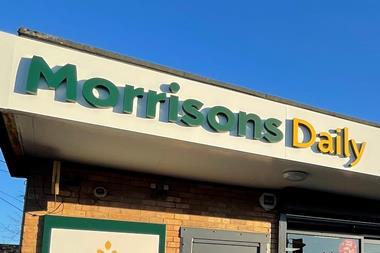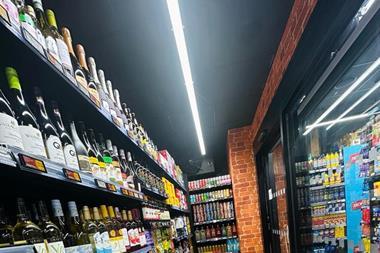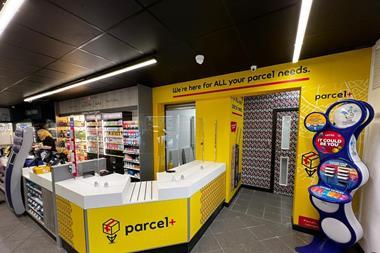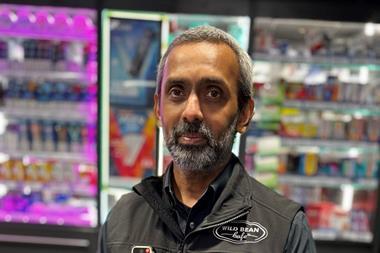When customers lose their cool, it is up to retailers and their staff to diffuse and control the situation.
Interacting with customers is one of the key pulls to the sales assistant role. And while on the whole this is usually a very positive and enriching experience, there can be a darker side to serving the public.
Retailers and their staff have a 54% chance of receiving verbal abuse, according to the Association of Convenience Store’s latest crime report. And the sad truth is that the actual figure may be even higher, given that every sales assistant Convenience Store spoke to for this feature had been the victim of some kind of aggressive behaviour.
But, as these sales assistants report, there are key triggers that can push shoppers to act aggressively, and watching out for these could play a big part in making sure you don’t end up with a barrage of abuse. “If someone’s in a rush and there’s a bit of a queue then they can get frustrated,” explains multiple symbol sector Sales Assistant of the Year 2015 Julie Sutton of Spar Sleaford in Lincolnshire. “Normally, they’ll stand in the queue and stare at you.”
Tiffany Sutton, general assistant at Filco Foods in Cowbridge, Glamorgan, is well used to the warning signs. “People start tutting, looking at their watch, shrugging their shoulders and gripping their basket tightly,” she says.
Show off your skills
If you are super-savvy when it comes to dealing with troublesome customers and pride yourself on your top-notch customer service skills, then why not enter our Sales Assistant of the Year Awards? We’re looking for sales staff who come up with solutions to take a business forward, and who truly engage with their community. If you think you’ve got what it takes, visit www.salesassistantawards.co.uk, call 01293 610439, or email Jane.Rollinson@wrbm.com for an entry form.
Deadline for entries is August 19.
Having to queue is a key trigger for customer frustrations, agrees Julie Buttery of Singh’s Premier Manor Road, Sheffield. “People can be very impatient; they don’t like to queue,” she says. “We’re a busy store and sometimes there’s only me on the till, and when we get additional staff on the tills who usually work on the shopfloor, they aren’t as quick. Customers start swearing and huffing and puffing.”
She doesn’t take any poor behaviour lying down, though. “I just tell them: ‘Excuse me, there are children present, please don’t swear’,” she says. She claims that in this situation, a firm but fair approach is the most effective. “You have to be assertive and firm, but polite. If you show the same aggression they’ve shown, it makes it worse.”
Simply acknowledging the customer in the first place can go a long way, notes Julie at Spar Sleaford. “We tend to look down the queue if it’s busy and say ‘sorry, we’ll be with you as soon as we can’, or if there’s a problem with the PayPoint machine, we’ll explain that it’s running slow,” she says. “You need to include the customer in what’s going on, always make eye contact with them and try to treat the issue with a response that makes them understand the situation.”
Sales Assistant of the Year 2015 Jennifer Kerr, who works at Spar Saintfield Road in Lisburn, says that hearing the customer out is vital. “Always let them have their full say,” she says. “I never interrupt them and always give an explanation. If you interrupt or become aggressive, it just fuels the situation.”
Taking preventative measures can go a long way to reducing customer conflicts. “We used to have an issue whereby a checkout assistant would accidently scan the main barcode of a reduced item instead of the lower price,” says Jennifer. “When customers realised, they would have to come back to the store to get their money back and they would often be angry at the situation.
“Now, we’ve started using stickers to block the original barcode so that it is impossible to scan it in error. This has really helped the situation.”
If you can’t prevent a problem happening in the first place, then using signage to explain the issue can also prevent bad feeling from customers. Julie at Spar Sleaford, for example, puts signs up in her store when PayPoint is down, explaining what the issue is and asking customers to be patient.
Independent sector Sales Assistant of the Year 2013 Sheena Whitehouse also uses signage at Springisland Supermarket in Coalisland, Co Tyrone. “Once, when I was training on the checkouts, we had an express till at the kiosk where you could come if you only had a few items. I had a man come to me with too many items and when I explained that we were an express checkout he got cross with me. He said he wanted tobacco and didn’t want to queue twice. After that, I put notices up to explain that you can buy tobacco products at any of the till points - not just the kiosk - and that helped to stop people getting upset going forward.”
However, while signage can be a useful communication tool, it will only work if it is worded effectively. “Our main problem is the wearing of hoodies and helmets in-store,” says Premier Eldred Drive store manager Anita Nye, who won Sales Assistant of the Year 2014. “If it is a customer you don’t recognise, you just feel that little bit more secure when you can see their faces - there are no barriers. With a crash helmet with a visor, you can’t even see people’s eyes and it cuts off a line of communication.
“When we had our refit, Premier put a poster up saying that helmets and hoodies were forbidden, which I felt was a bit aggressive in itself,” she says.
The light-hearted approach
Many people simply ignored the instruction, so in order to deal with the issue staff began asking customers directly to remove hoodies and helmets when entering the store, but this often led to problems. “Some staff were only asking people they didn’t know to take them off and then those people got frustrated, thinking ‘why me?’ If they feel they are being targeted in any way then customers can become defensive and aggressive.”
Thankfully, Anita came up with a smart solution. “The only way to do it was to make sure that it applied to everyone and to make light of the situation,” she says. “I found two pictures of llamas with funny hair and made up a poster, which says: ‘Good hair day or bad hair day, we don’t mind either way, just please remove your helmets and hoodies when you come in the store.’
“We put the signs in the shop window and on the door, so that people see it before they enter the store and then they know where they stand.”
Keeping things light-hearted can work in other tricky situations, too, such as asking customers for ID in relation to age-related sales. “It’s very rare that people get upset about being asked for ID in our store,” says Julie of Spar Sleaford. “But I tell them that if they didn’t look so young I wouldn’t have to ask - you have to turn the situation round and make light of it,” she says.
“Occasionally we have issues with ID,” says Anita. “Most people know we are going to check as we put up signs in-store, and every six months we re-check all IDs. We just tell customers to carry their ID with them to save any issues. When customers get frustrated with being asked for ID, a lot of it is that the customer doesn’t realise what is at stake for us as a business if we mess up, so it can help to explain that.”
Knowing your customers makes a big difference, she adds. “We’re lucky as we don’t get a lot of trouble here - Raju [the owner] has worked here for 25 years and he knows every- one. We’ve have customers in their 20s who we have known from when they were babies, so we train them from an early age!”
Even when customers do become aggressive, Anita says that they often just want to get an issue off their chests and if you approach the situation in the right manner, you can nearly always resolve it.
Jennifer agrees: “I tell the person complaining that I fully understand where they are coming from. Word of mouth is very important for convenience stores and you don’t want complaints to get out of hand. Nine times out of 10, a customer who has complained leaves the store happy.”
Top tips
Techniques to reduce the abuse
The Association of Convenience Stores’ 2016 Crime Report offers the following advice:
AGE RESTRICTED SALES - ABUSE AT THE TILL
Making sure that staff challenge customers who want to buy age-restricted products such as alcohol and tobacco is imperative, but can often lead to confrontation. Ensure that you have clear signage in-store explaining your policy and that staff enforce this consistently. Make sure that your staff are trained to manage difficult customers and can clearly explain your store policy.
REFUSING TO SERVE INTOXICATED PERSONS
Retailers are legally obligated to refuse an alcohol sale to an intoxicated person. One way to avoid personal abuse in this situation is to make clear to the customer that it is not your decision, but the rules applied to your licence.
PREVENTING SHOP THEFT
In attempt to prevent shop theft offenders from fleeing the store, retailers can experience verbal abuse and violence from the offender. Ensure that you put your own safety first. Keep a safe distance when engaging with potential shoplifters. Assess each individual situation on whether it is safe to make the confrontation.
Retailer’s view
Wired for sound when it comes to ID checks
Nathan Ganapathy, owner of Best-one, Bristol, has had his fair share of difficult customers. His store is located in a student area, meaning that he gets a new batch of customers every year.
They can get angry when asked for ID, he notes. “I simply say ‘no means no’ when it comes to ID,” he says. “They tell me all sorts of stories - ‘I’m from Wales and I don’t have ID’ etc. I try to be polite, but I refuse the sale.
“A lot of their behaviour depends on how controlled you are and how you take their comments. The students know that I will go and complain to the accommodation owners if they cause trouble. They will talk to the students and if that doesn’t control their behaviour, then I will go to the police.”
In addition to CCTV, Nathan has set up a microphone at the till point. “You don’t have to be aggressive with someone just because they are being aggressive to you, I just tell them - mind your words, you are being recorded.”
While the microphone and CCTV often acts as a deterrent, they have also provided vital evidence in a customer abuse claim.
“I have taken a man to court for being abusive when I refused to serve them without ID,” says Nathan. “He was shouting and spitting at me and threw a sandwich at me. It was very unusual behaviour and the police had enough evidence to convict him.”





















No comments yet